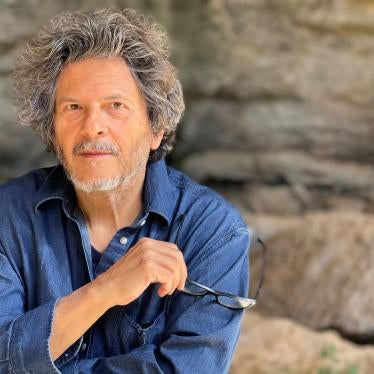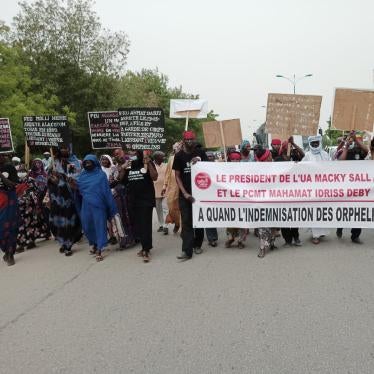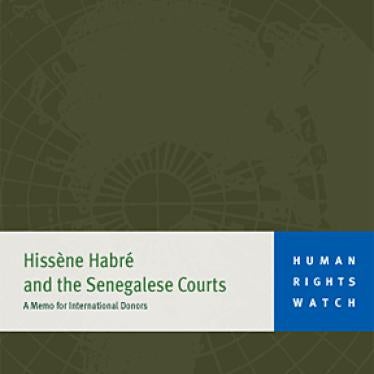This week, justice came to Chad. On Thursday, a Belgian judge, acting under the authority of his country's controversial, and since repealed, long-arm anti-atrocity statute, indicted Hissène Habré, the exiled ex-dictator who brutalized the impoverished African country from 1982 to 1990, on charges of torture and crimes against humanity.
Justice came because of Souleymane Guengueng, a modest civil servant who watched hundreds of cell-mates perish from torture and disease during two years in Habré's prisons. Guengueng took an oath before God that if he ever got out of jail alive, he would bring his tormenters to justice.
When Habré was finally chased out by his former chief of staff, Idriss Déby, in 1990 and fled to Senegal — where he lived safely in a seaside villa enjoying the $14 million he reportedly looted from the treasury as he fled — Guengueng, a walking skeleton, used his considerable charm to persuade hundreds of still-frightened victims to form a group to prepare a case against Habré. Déby's new government soon brought on many of Habré's henchmen, however, and gave up on seeking his extradition.
Ten years later, inspired by the London arrest of former Chilean dictator Augusto Pinochet, Guengueng and his colleagues traveled to Senegal with the help of international rights groups to ask the courts there to arrest Habré. Even they were surprised when a bold young Senegalese judge listened to their testimony and indicted Habré on torture charges and placed him under house arrest.
But soon after, the young judge was transferred off the case, and the prosecution was dismissed on the ground that Senegalese courts had no jurisdiction over crimes committed in Chad.
Guengueng did not give up, however. He and other victims, including several who had taken up exile in Belgium, pressed charges against Habré in that country, whose famous "universal jurisdiction" law allowed its courts to hear atrocity cases from all over the world.
A Belgian judge approved the case and went to Chad, where he and a police team visited Habré's former prisons and mass graves together with Guengueng and other ex-detainees. Witnesses lined up to tell their story.
Working with Guengueng, I made frequent trips to Chad to build the case against Habré. Once, I stumbled onto the abandoned archives of Habré's personal Gestapo, the feared "DDS." Tens of thousands of documents strewn on the floor, including daily lists of dead prisoners, surveillance reports and arrest records, detailed how Habré had placed the DDS under his direct control, attacked rival ethnic groups and organized the repression of political opponents.
Two years ago, the case again looked dead. Under heavy U.S. pressure following charges filed there against U.S. officials, Belgium repealed its ambitious anti-atrocity law. Guengueng and I went to Brussels, however, and won a grandfather clause for the Habré prosecution.
Now, 15 years after Habré was deposed, and more than five years after he was first arrested in Senegal, a Belgian judge has indicted the former tyrant and is seeking his extradition. Senegal's president has said he has no objection to turning Habré over. Habré's trial in Belgium would be a wake-up call to dictators in Africa and elsewhere that if they commit similar atrocities, they could also be brought to justice one day.
Reed Brody is special counsel with Human Rights Watch.








